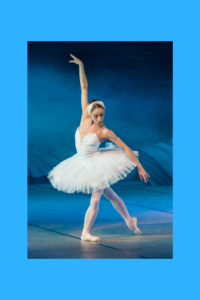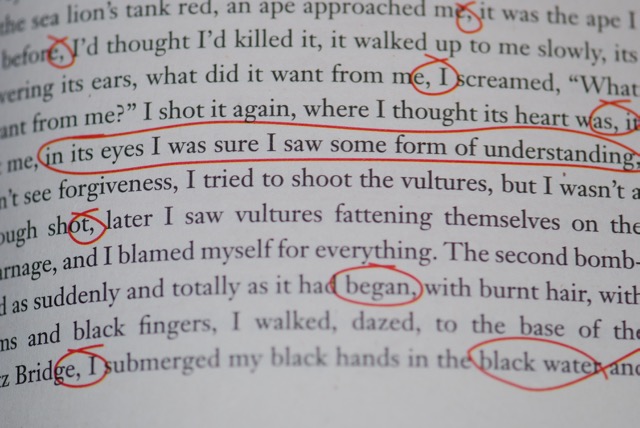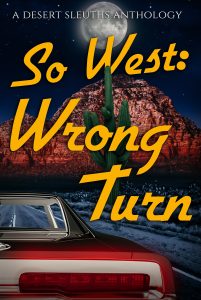Rather than doing two formal reviews of each novel, Karen and I have decided to discuss each title from The Bestseller Code 100 list more informally on our facebook page and post an edited version here. We’ll see how it works.
This post does contain spoilers.
This week we have The Casual Vacancy by J. K. Rowling


(*Amazon Affiliate link)
Summary: In the little town of Pagford, Barry Fairbrother’s seat on the council comes open when he dies unexpectedly. Behind the scenes of Pagford’s idyllic small town atmosphere are different groups of residents who are regularly at odds with each other; rich fight with the poor, teenagers battle and annoy their parents, wives attack their husbands, teachers grapple with their pupils. Before long, however, Barry’s empty seat on the town’s council soon becomes prize for the biggest brawl the town has ever seen.
Our Thoughts
We’re moving on to The Casual Vacancy. Have you read it? Any interest in reading it?
Karen I’m still getting to know the characters. It’s interesting that the very first chapter the pivotal character dies…or at least it seems like he’s going to be a pivotal character.
Roberta Yes, the character’s death is an inciting incident. I’m looking forward to seeing what, if any, elements are common to Rowling’s works.
Karen I just finished a segment where social worker Kay, Gaia’s mother, is at the home of Terri Weedon, a drug addict. This is definitely not the fantasy world of Harry Potter.
Roberta She seemed to want to make it very clear this wasn’t a children’s book, with all the expletives, sex, violence, and drugs. She might have taken it too far to make the point? That said, there are some commonalities. For example, kids at a school play a big role. Plus, she creates an enormous cast of characters.
Karen I took a break for a few days is illness and travel, but I’m still reading “Casual Vacancy.” This is one of the more complex books we’ve read so far, both in the number and depth of the characters and their intertwined lives. You almost forget the overarching plot of Barry Fairbrother’s death and resulting vacancy in the board. It’s nothing like the Harry Potter books and yet it is.
Roberta Rowling’s ability to create and weave together so many interesting, relatable, and largely likeable characters — who are each memorable and unique — is a remarkable talent. I will refrain from saying more until you finish.
Karen Finished! So much happened in the last 10% or so that I’m going to have to reread it. Wow.
More thoughts on “Casual Vacancy” – I reread the last 15% of the book and then skimmed through the beginning to find segments of Barry Fairbrother’s funeral. 3 deaths, as foreshadowed in the song sang at the funeral. And unexpected deaths/funerals bookend the novel.
Of all the books we’ve read, this is one that has wormed it’s way into my brain. I keep considering the characters, how they intertwined, how they changed throughout the story. None come through unscathed.
This novel is categorized as Tragicomedy? Obviously I don’t understand the term comedy. There’s no humor anywhere. Why would this not be literary fiction like some others we’ve read, such as “State of Wonder” or “Little Bee?”
Roberta Perhaps the “comedy” is the ridiculousness that results in the tragic events? What could be described as “cruel jokes”? But, I agree, nothing to grin or giggle at.
As far as literary, I think that literary is an exploration of one person’s inner life in detail, and this is much too distant from any one character to qualify for that. In Casual Vacancy we see binocular-range views of many characters, rather than a microscope-level view of one or a few people like State of Wonder? At least that’s my understanding how literary works.
Karen You have a much better understanding of of these genres than I do!
Roberta Looking at the characteristics of literary fiction on Wikipedia, it does fit the first and last of them well: concern with human condition and the overall dark storyline.
I’m not seeing the inner story, introspective aspect as much, and this one has a clear plot.
What do you all think about the style and complexity of the writing? Is it lyrical? “Fancy?”
Karen I didn’t find it lyrical. More gritty and real-life. She’s definitely lived the life of the have-nots.
Roberta Yes, it is well-known that she lived on government assistance as a single mother and her experience shows.
That wraps up our discussion for this novel.
Have you read The Casual Vacancy by J. K. Rowling? We’d love to hear your thoughts.
Join our discussion on Facebook or follow on other social media:
__________________
What are we reading next?
If you ever have questions about what we are reading next or when we’re starting the next discussion, check the 100 Book List tab in the navigation bar at the top of the blog. Links in the list go to the landing page from this blog where the discussion starts. However, this is an open-ended challenge so feel free to jump in with any of the books at any time.
The next book is number 47. Maine by J. Courtney Sullivan (2011) – Discussion begins February 25, 2019
Domestic Fiction

















